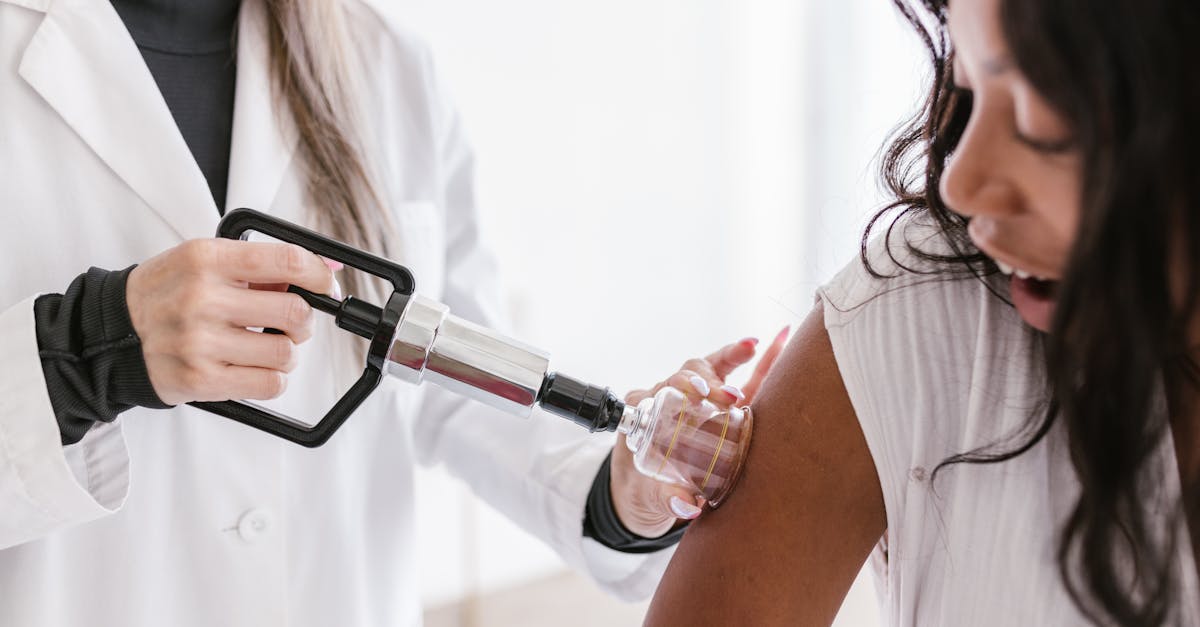What is an example of holistic?

Holistic Methods for Stress Management
Stress management through holistic methods involves addressing the mind, body, and spirit to achieve balance and harmony. One effective way to reduce stress holistically is through mindfulness practices such as meditation. By cultivating awareness of the present moment, individuals can learn to observe their thoughts and feelings without judgment, which can lead to a greater sense of calm and clarity.
Another beneficial holistic approach for stress management is the practice of yoga. Yoga combines physical postures, controlled breathing, and meditation to promote relaxation and reduce the body's stress response. Through regular practice, individuals can increase their physical strength, flexibility, and mental resilience, which can help them better cope with the daily pressures of life.
Utilizing Meditation and Yoga
Meditation and yoga are powerful techniques that contribute to holistic well-being. By incorporating these practices into your daily routine, you can enhance both your physical health and mental clarity. Meditation involves focusing the mind and fostering a sense of inner peace. This practice can help reduce stress, anxiety, and promote emotional balance. On the other hand, yoga combines physical postures with controlled breathing and meditation. It not only improves flexibility and strength but also calms the mind and relaxes the body. By integrating meditation and yoga into your lifestyle, you can promote a sense of overall wellness and harmony.
Holistic Remedies for Common Ailments
Holistic remedies offer a comprehensive approach to treating common ailments by addressing the root causes rather than just the symptoms. One example of a holistic remedy is herbal medicine. Herbal remedies have been used for centuries in various cultures and are believed to promote overall health and well-being. For instance, herbs like echinacea and garlic are known for their immune-boosting properties and can help prevent and alleviate symptoms of colds and other illnesses.
Another effective holistic remedy is acupuncture, a traditional Chinese medicine practice that involves inserting thin needles into specific points on the body to restore balance and promote healing. Acupuncture is believed to help with a wide range of common ailments, including chronic pain, digestive issues, and stress-related conditions. By targeting energy pathways in the body, acupuncture aims to improve circulation, reduce inflammation, and enhance the body's natural ability to heal itself.
Exploring Herbal Medicine and Acupuncture
Herbal medicine and acupuncture are two popular holistic remedies that have been utilized for centuries to promote well-being and treat various health conditions. Herbal medicine involves using plants and plant extracts to address a wide range of ailments, from digestive issues to skin problems. Different herbs possess unique properties that can help the body restore balance and enhance its natural healing abilities.
Acupuncture, on the other hand, is a form of traditional Chinese medicine that involves stimulating specific points on the body by inserting thin needles. This practice is believed to help regulate the flow of energy, or qi, within the body to alleviate pain and improve overall health. Many individuals turn to acupuncture to relieve chronic pain, reduce stress, and enhance their sense of overall wellness.
Holistic Beauty and Skincare
Holistic beauty and skincare emphasize the notion that true beauty starts from within. It incorporates a comprehensive approach that considers not only external factors but also internal health and well-being. This approach believes that nourishing the skin from the inside out plays a crucial role in achieving radiant and healthy skin.
In holistic beauty and skincare, the focus is on using natural and organic ingredients that are gentle on the skin and free from harmful chemicals. This approach also places importance on lifestyle factors such as diet, stress management, and mindfulness practices, as they can significantly impact the health and appearance of the skin. By adopting a holistic beauty and skincare routine, individuals can promote overall wellness while enhancing their natural beauty.
Nourishing the Skin from the Inside Out
When it comes to achieving healthy and glowing skin, nourishing it from the inside out is a crucial aspect that should not be overlooked. Consuming a nutrient-rich diet plays a vital role in ensuring your skin remains vibrant and youthful. Foods high in antioxidants, such as berries, nuts, and leafy greens, help protect your skin from damage caused by free radicals, promoting a radiant complexion.
Furthermore, staying well-hydrated is essential for maintaining skin elasticity and preventing dryness. Drinking an adequate amount of water throughout the day not only flushes out toxins from your body but also keeps your skin hydrated and plump. Incorporating foods with high water content, like cucumbers, watermelon, and tomatoes, can also contribute to supporting optimal skin health from within. Remember, nourishing your skin internally is just as important as taking care of it externally for a holistic approach to skincare.
FAQS
What does it mean to take a holistic approach to health and wellness?
Taking a holistic approach means looking at the whole person - mind, body, and spirit - and addressing all aspects to achieve overall well-being.
Can holistic methods be effective for managing stress?
Yes, holistic methods such as meditation and yoga can be very effective in managing stress by promoting relaxation, reducing anxiety, and improving mental clarity.
How do holistic remedies like herbal medicine and acupuncture work?
Holistic remedies like herbal medicine and acupuncture work by addressing the root cause of ailments and promoting balance within the body's natural systems.
Are there holistic approaches to beauty and skincare?
Yes, holistic approaches to beauty and skincare focus on nourishing the skin from the inside out, using natural ingredients and techniques to promote overall health and radiance.
Why is it important to consider holistic practices in our daily lives?
Considering holistic practices in our daily lives can help us achieve a balanced and harmonious state of well-being, leading to improved physical, mental, and emotional health.
Related Links
What is holistic therapy?How to do holistic healing?